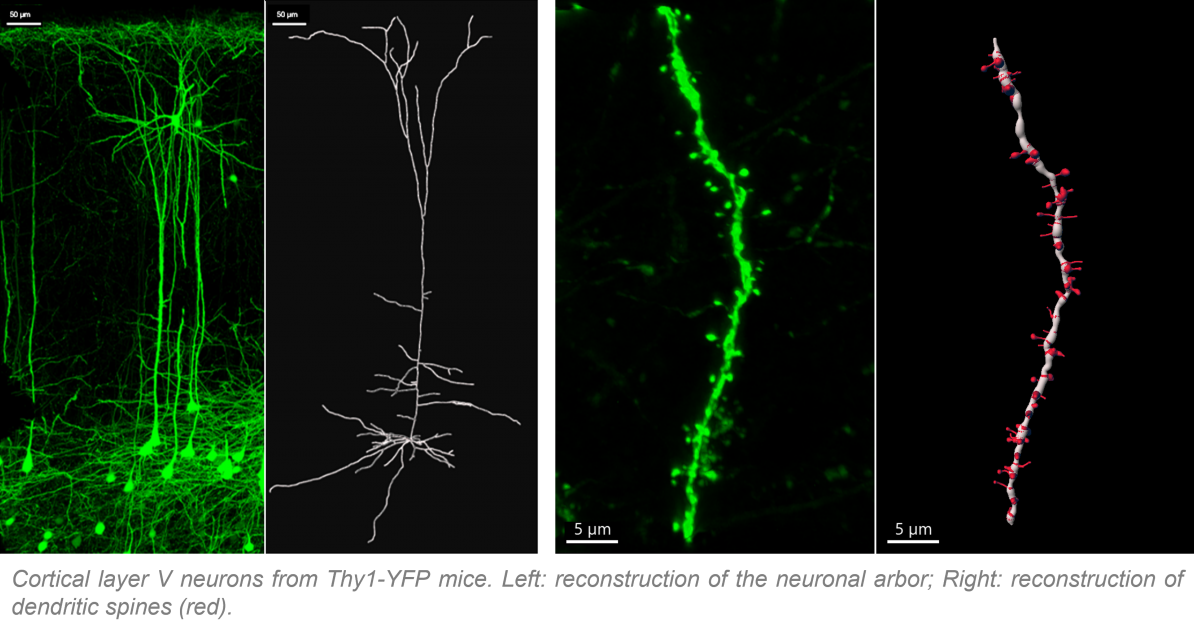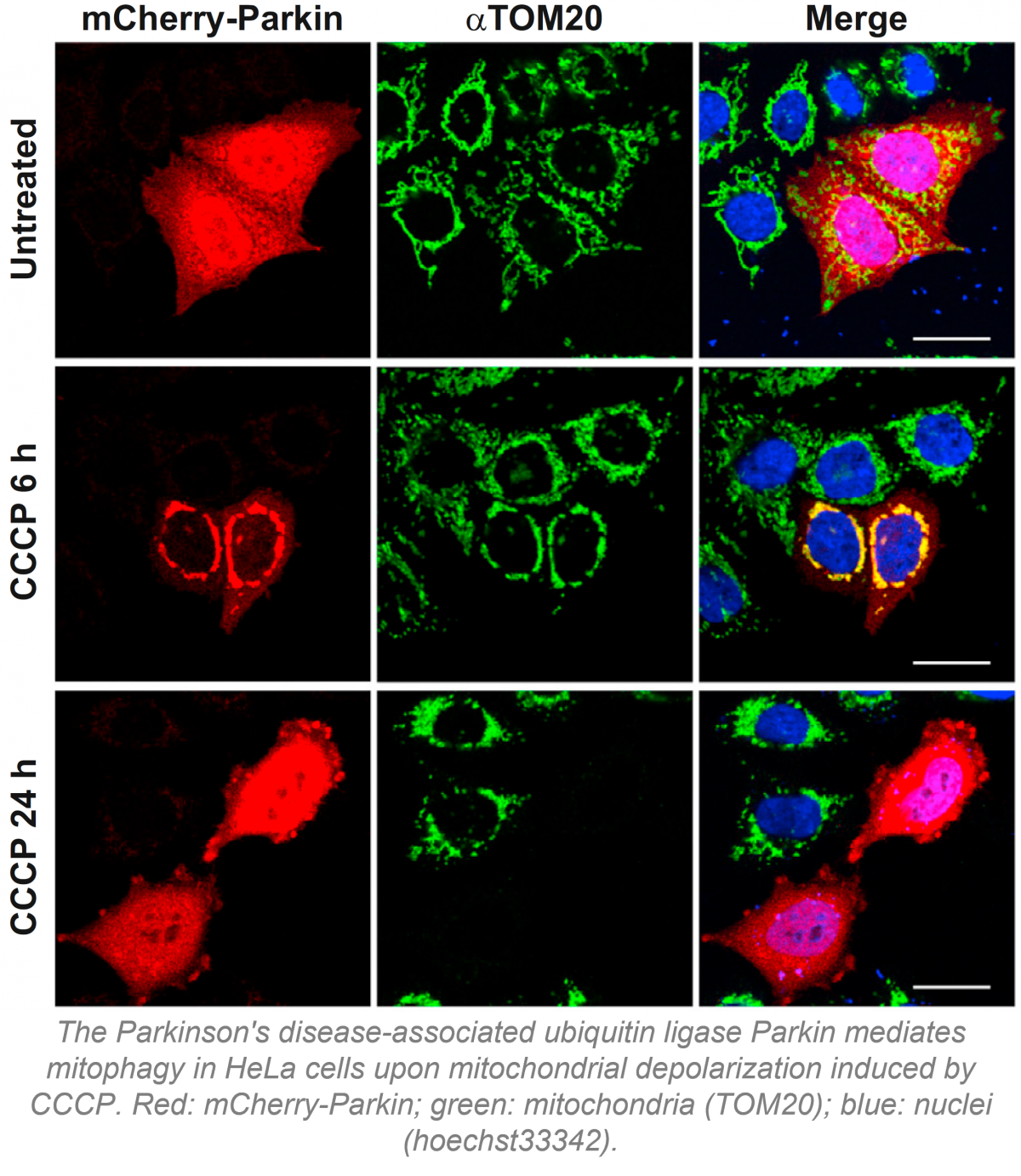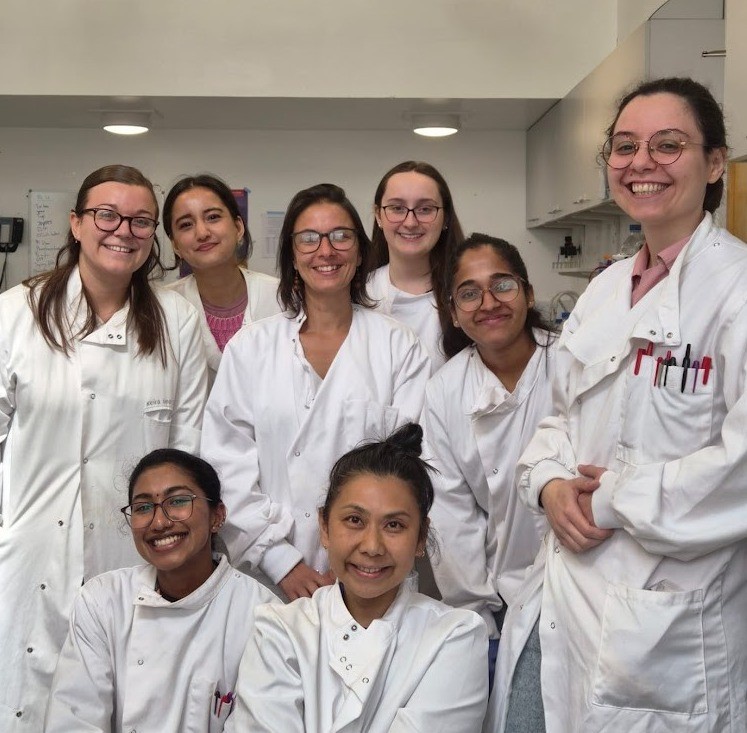
Lecturer
- About
-
- Email Address
- emilie.hollville@abdn.ac.uk
- Office Address
- School/Department
- School of Medicine, Medical Sciences and Nutrition
Biography
I graduated with honours in Cellular Biology and Physiology from the University of Versailles, France before receiving my PhD in Biochemistry, Molecular and Cellular Biology from the University of Paris-Saclay in 2009. Following my PhD, I obtained a postdoctoral research position at the Smurfit Institute of Genetics, Trinity College Dublin, Ireland. In 2015, I moved to North Carolina, USA to further gain experience in neuroscience, working as a postdoctoral research fellow at the Neuroscience Center of the University of North Carolina at Chapel Hill. I was appointed as a Lecturer at the University of Aberdeen in September 2022.
I have a particular interest in the role of programmed cell death, and more specifically a form of programmed cell death called apoptosis, in cell and tissue homeostasis. I have studied the regulation of the apoptotic machinery in various cellular models including cancer, development, and neurodegenerative disorders.
Qualifications
- PhD Biochemistry, Molecular and Cellular Biology2009 - Université Paris-Saclay, France
- MSc Cell Biology and Cancer Genetics2004 - Université Paris-Saclay, France
- BSc Cellular Biology and Physiology2003 - Université de Versailles Saint-Quentin en Yvelines, France
Memberships and Affiliations
- Internal Memberships
-
- Institute of Medical Sciences, Equality, Diversity and Inclusion committee
- School of Medicine, Medical Sciences and Nutrition, Laboratory Sustainability Working Group (LABSUS)
- External Memberships
-
- Member of the British Neuroscience Association (BNA)
- Member of the Federation of European Neuroscience Societies (FENS)
- Member of the ALBA Network
- Research
-
Research Overview
Mechanisms controlling brain maturation and sustaining brain health throughout life
The postnatal programs that mature the nervous system are critical to refine neuronal circuits and connectivity for the emergence of individual behaviour. The genetic factors and pathways required for neuronal maturation (e.g. synaptic development and plasticity, neurite branching and arborization) are often found affected both in neurodevelopmental and neurodegenerative disorders.
My lab focuses on understanding the molecular and cellular pathways that support neuronal maturation and maintenance of lifelong neuronal health and survival. I am particularly interested in understanding the role played by ubiquitin ligases and programmed cell death regulators in these processes.

Relevant publications
- MicroRNA-29 is essential for brain maturation through regulation of CH methylation. Swahari V, Nakamura A, Hollville E, … , Anton ES, Greenberg ME, Deshmukh M. Cell Reports. 2021 Apr 6;35(1):108946. Link to publication
- Apoptotic Cell Death Controls in Neurons. Hollville E, Romero S, Deshmukh M. FEBS J. 2019 Sep;286(17):3276-3298. Link to publication
- Physiological functions of non-apoptotic caspase activity in the nervous system. Hollville E, Deshmukh M. Semin Cell Dev Biol. 2018 Oct;82:127-136. Link to publication
Mitochondrial quality control in neurodegenerative disorders
Age-related neurodegenerative disorders affect millions of people worldwide and are characterized by impairment in cognitive and/or motor functions. These disorders develop as a result of neuronal dysfunction in the brain or in the peripheral nervous system that eventually result in neuronal death. Common features of neurodegenerative disorders are mitochondrial function failure and defective clearance of damaged mitochondria.
Mitochondria are central hubs for metabolism, energy production, cytoplasmic calcium buffering, regulation of reactive oxygen species production and inflammation. High metabolic and calcium buffering activities, such as the ones required to sustain normal neuronal function, make mitochondria particularly prone to damage. Cells have developed a quality control mechanism for the targeted elimination of impaired mitochondria by autophagy, a process called mitophagy.
I am interested in understanding the interactions between neuronal activity and function and the mitochondrial quality control pathways.

Relevant publications
- Characterization of a Cul9 – Parkin double knockout mouse model for Parkinson’s disease. Hollville E, Joers V, Nakamura A, Swahari V, Tansey MG, Moy SS, Deshmukh M. Scientific Reports. 2020 Oct 9;10(1):16886. Link to publication
- Bcl-2 Family Proteins Participate in Mitochondrial Quality Control by Regulating Parkin/PINK1-Dependent Mitophagy. Hollville E, Carroll RG, Cullen SP, Martin SJ. Mol Cell. 2014 Aug 7;55(3):451-66. Link to publication
- Parkin Sensitizes Towards Apoptosis Induced by Mitochondrial Depolarization Through Promoting Degradation of Mcl-1. Carroll RG, Hollville E, Martin SJ. Cell Reports. 2014 Nov 20; 9(4):1538–1553. Link to publication
Research Areas
Research Specialisms
- Molecular Biology
- Cell Biology
- Neuroscience
- Biomedical Sciences
Our research specialisms are based on the Higher Education Classification of Subjects (HECoS) which is HESA open data, published under the Creative Commons Attribution 4.0 International licence.
Supervision
My current supervision areas are: Biomedical Sciences.
Current Lab members:
- Mx Paola Muscolino (PhD Student)
- Ms Sandra Maria Sajan (PhD Student)
- Ms Satoko Murakami (Research Assistant)
- Ms Keira Hendry (Research Technician)


Past and present Undergraduate students:
- Oct 2025 - : BSc Neuroscience student Melisa Guzeloglu
- Oct 2025 - : MBChB Medicine students Althaia Skondra & Bruce Zhang
- July-August 2025: BSc student Tanisha Khera (Hotstart funded)
- June-August 2025: MSc students Rebecca Smith & Swathi Kodandarama
- June-August 2024: BSc student James O'Neill (Hotstart funded)
- Honours 2024: Honour students Iida Holappa, Jake Bell & Dana Zlateva


Funding and Grants
Grants:
- Academy of Medical Sciences Springboard award (2024/26)
- The Royal Society Research Grant (2023/24)
Studentships/Fellowships:
- UKRI BBSRC EASTBIO PhD Studentship (2023/27)
- Development Trust SCIO PhD Studentship (2023/27)
- Teaching
-
Teaching Responsibilities
- SM2501 - Research Skills for Medical Sciences
- SM4501 - Medical Sciences Honours project
- MB5518 - Masters Research tutorials
- MB5904 - Masters Research Project
- Publications
-
Page 1 of 3 Results 1 to 10 of 25
Apoptosis signaling is activated as a transient pulse in neurons
Cell Death & Differentiation, vol. 32, pp. 521-529Contributions to Journals: ArticlesmiR-29 is an important driver of aging-related phenotypes
Communications Biology, vol. 7, 1055Contributions to Journals: ArticlesAberrant miR-29 is a predictive feature of severe phenotypes in pediatric Crohn’s disease
JCI Insight, vol. 9, no. 4, e168800Contributions to Journals: Articles- [ONLINE] DOI: https://doi.org/10.1172/jci.insight.168800
- [OPEN ACCESS] http://aura.abdn.ac.uk/bitstreams/8522bb0a-5057-4365-957a-5a882b277b27/download
- [ONLINE] View publication in Scopus
Discriminating Between Apoptosis, Necrosis, Necroptosis, and Ferroptosis by Microscopy and Flow Cytometry
Current Protocols, vol. 3, no. 12, e951Contributions to Journals: Articles- [ONLINE] DOI: https://doi.org/10.1002/cpz1.951
- [OPEN ACCESS] http://aura.abdn.ac.uk/bitstreams/7190d37b-9601-418c-9704-24f42f2c14c0/download
- [ONLINE] View publication in Scopus
Aberrant miR-29 is a predictive feature of severe phenotypes in pediatric Crohn’s disease
Working Papers: Preprint PapersmiR-29 is an important driver of aging-related phenotypes
Working Papers: Preprint Papers- [ONLINE] DOI: https://doi.org/10.1101/2022.11.29.518429
- [ONLINE] http://dx.doi.org/10.1101/2022.11.29.518429
Constitutive High Expression of NOXA Sensitizes Human Embryonic Stem Cells for Rapid Cell Death
Stem cells (Dayton, Ohio), vol. 40, no. 1, pp. 49-58Contributions to Journals: Articles- [ONLINE] DOI: https://doi.org/10.1093/stmcls/sxab008
- [ONLINE] View publication in Scopus
MicroRNA-29 is an essential regulator of brain maturation through regulation of CH methylation
Cell Reports, vol. 35, no. 1, 108946Contributions to Journals: ArticlesCharacterization of a Cul9–Parkin double knockout mouse model for Parkinson’s disease
Scientific Reports, vol. 10, 16886Contributions to Journals: Articles- [ONLINE] DOI: https://doi.org/10.1038/s41598-020-73854-y
- [OPEN ACCESS] http://aura.abdn.ac.uk/bitstreams/f1531be7-9173-4d42-8c15-0089f19468c7/download
- [ONLINE] View publication in Scopus
Apoptotic cell death regulation in neurons
FEBS Journal, vol. 286, no. 17, pp. 3276-3298Contributions to Journals: Review articles- [ONLINE] DOI: https://doi.org/10.1111/febs.14970
- [ONLINE] View publication in Scopus
